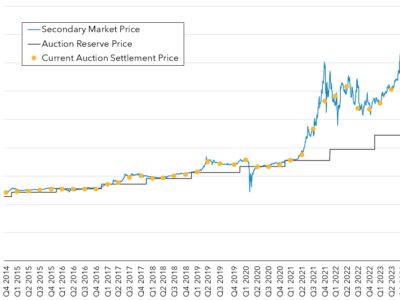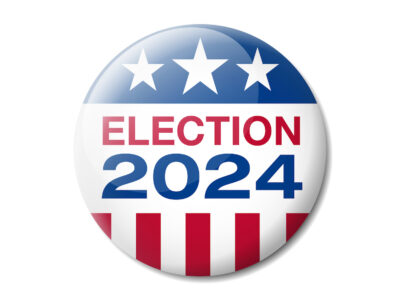Politics versus Science in the 2010 Election Cycle
Here’s some fairly depressing news from Wonk Room:
Remarkably, of the dozens of Republicans vying for the 37 Senate seats in the 2010 election, only one — Rep. Mike Castle of Delaware — supports climate action. Even former climate advocates Sen. John McCain (R-AZ) and Rep. Mark Kirk (R-IL) now toe the science-doubting party line.
Many of the Senate candidates are signatories of the Koch Industries’ Americans For Prosperity No Climate Tax pledge and the FreedomWorks Contract From America. The second plank of the Contract From America is to “Reject Cap & Trade: Stop costly new regulations that would increase unemployment, raise consumer prices, and weaken the nation’s global competitiveness with virtually no impact on global temperatures.”
It’s especially depressing that even people who obviously do get the science, like John McCain, feel that they can’t afford to say so. Kudos for Delaware’s Mike Castle, however — at least he’s not willing to say that 2+2 = 5 just because it’s the current party dogma.
Reader Comments
3 Replies to “Politics versus Science in the 2010 Election Cycle”
Comments are closed.








It is a fundamental error to say that opposition to cap-and-trade or other climate measures is a rejection of science. Science does not answer normative questions, such as what policy measures are (or are not) justified. One can believe human activities are contributing to global warming and that warming is a serious problem and yet still believe in any or all of the following: a) the costs of available climate policies are greater than the likely costs of warming; b) cap-and-trade would be a costly bureaucratic mess that would not do much to reduce the threat of warming; c) public resources are better off focused on adaptation and/or technological innovation than near-term emission reductions; d) given economic conditions and other societal needs, no climate measures should be adopted that increase the net tax burden on the economy; or e) no domestic climate mitigation measures make sense until there is a reasonable probability of a viable international agreement.
There is no question that some Republicans and conservative pundits reject fairly well-established scientific conclusions. But others should not make the error of mistaking legitimate policy disputes with disagreements over the science. Scientific conclusions can inform climate policy, but scientific conclusions do not dictate any particular policy response.
Jonathan H. Adler
“… of the dozens of Republicans …, only one … supports climate action. … ‘Reject Cap & Trade: Stop costly new regulations …’ ”
Since when did “climate action” come to become synonymous with “Cap & Trade”? Maybe the most productive way to effect climate action would, indeed, be to “Reject Cap & Trade”. Look at what works, e.g.: “… Portugal shows U.S. how to move forward“; “Feed-in tariffs saved French ratepayers money …“.
Dear Professor Adler,
Thanks for your insightful and well stated comments. Many climate change proponets now recognize that science and technology can not provide any feasible method of controlling and modulating global atmospheric temperature trends. Climate issues will be relegated to obscurity after the November elections. This forum needs to find another big environmental issue to talk about.